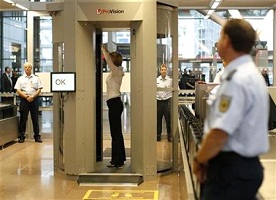The International Air Transport Association (IATA) plans to take up Smart Security, a joint initiative with the Airports Council International, to strengthen and increase operational efficiency and improve passenger experience in India and other emerging markets. “We have already had limited engagement. Capacity building (for better security and safety of the industry) is very important to us especially in emerging markets,” Nick Careen, Senior Vice-President, Airport, Passenger, Cargo and Security IATA, told the Indian media attending IATA’s Global Media Day function.Smart Security envisions a future where passengers proceed through security checkpoints with minimal inconvenience, where security resources are allocated based on risk and where airport facilities can be optimised contributing to an improved journey from the curb side to the aircraft.
Among its other efforts at making flying safer is IATA’s Conflict Zones initiative which is a result of the disaster that struck Malaysian Airlines Flight 17 flying from Amsterdam to Kuala Lumpur. The Malaysia Airlines’ aircraft was allegedly shot down by a missile fired from a conflict zone.
The airline believes that if the crew had real time information on security threats the accident might have been avoided as the crew could have followed a different route avoiding the conflict zone. The Malaysia Airlines aircraft crashed in Ukraine in July 2014. On board were 283 passengers and 15 crew members. Among the passengers were 196 Dutch citizens.
“The challenge in the Conflict Zone project is sharing of information. A lot of the airlines have access to a lot of information but this is in multiple places. This makes its complicated to get (that information). It is not quick enough. We are collecting all the information and will come up with a new repository which will not only focus on conflict zones but the entire threat. Our recommendations will be submitted by the middle of next year and we will begin acting by the end of the year,” Careen said.
The idea of coming up with a new repository was looked at as the current repository with the International Civil Aviation Organisation which is meant to address issues like MH 17 “is woefully inadequate” Careen said adding that IATA is in the process of (with ICAO and others), renewing and expanding the scope beyond conflict zones to sharing in general so that not only can operations be improved but also information for all airlines to take the decisions required for flying.








